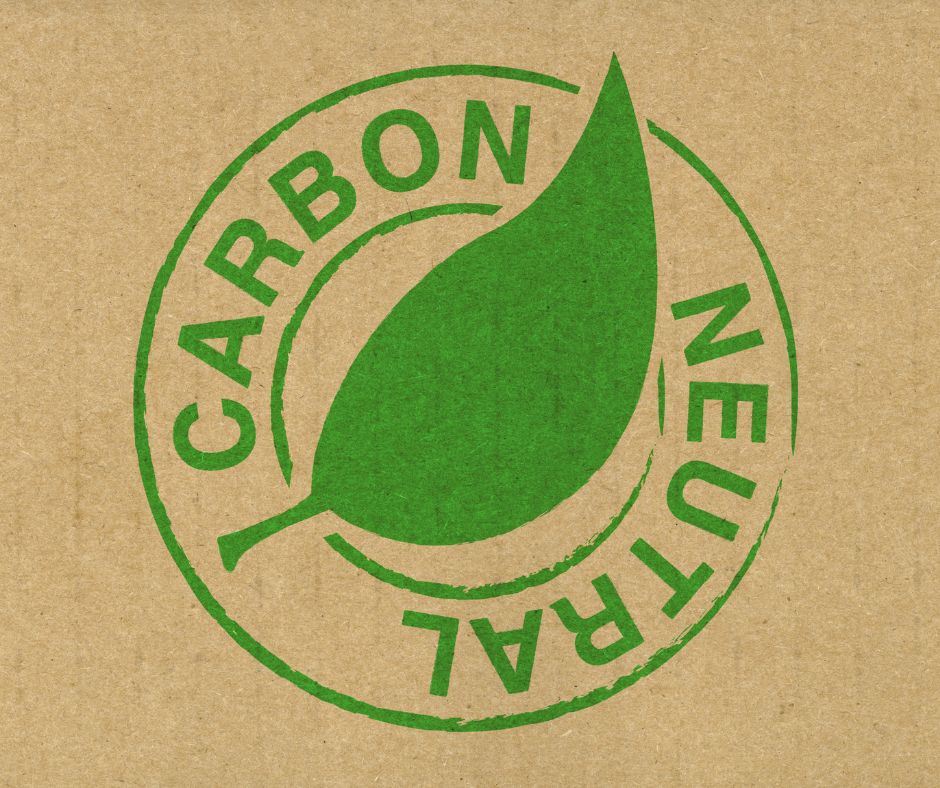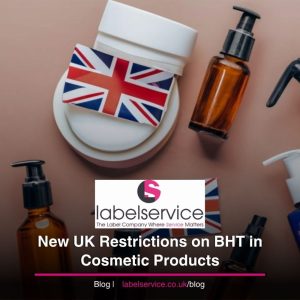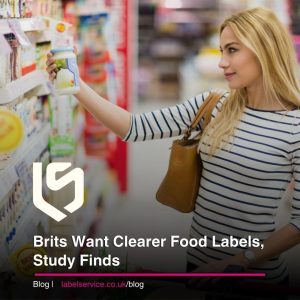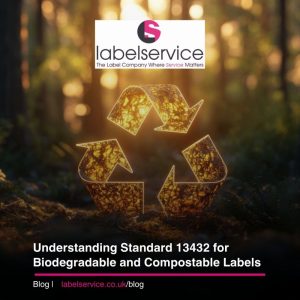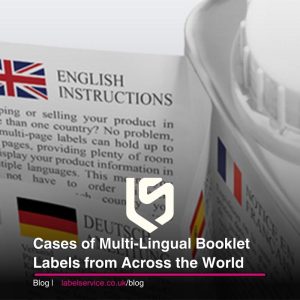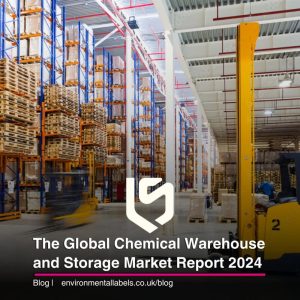Carbon labels are a simple, single number that tell you the carbon footprint of that product. Nearly everything we do causes carbon emissions and, by default, has a carbon footprint. Carbon labels tell us what that footprint is.
We’re in a climate crisis and we all need to lower our carbon footprint. The problem is that at the moment no one really knows if what they buy has a large footprint or not. A carbon label helps to avoid guesswork and false preconceptions. Like food nutrition labels, they tell consumers the carbon numbers in a product. This allows us to make informed decisions on the environmental impact of what they buy.
As awareness of and engagement with the climate crisis grows, more and more people want to measure and reduce their carbon footprint. With greenwashing running rife across all industries and increasingly savvy consumers (particularly the infamous Gen Z), numbers are a simple, objective way to communicate your sustainability. Around half of consumers would choose a more planet-friendly holiday if the option was available.
When so many products claim to be sustainable, how can consumers make a more informed choice? Carbon labelling makes it easy to make sustainable choices. Carbon labelling is a simple, easy way to demonstrate that your company cares. It’s an honest, transparent approach to sustainability. We all have a carbon footprint, putting a label on it tells your customers that you’re taking ownership of yours. Around 70% of businesses we work with incorporate carbon labelling into their strategy. And it makes sense. If as a business you want to reduce your footprint, you want to make it easier for customers to find your low carbon products.
Plant-based milk brand, Oatly, has paved the way in the food and drinks industry with their iconic packaging and bold ad campaigns. But carbon labels aren’t just for oat milks – more and more companies are realising it’s not only good for the planet, but also good for business. That’s why carbon labels are here to stay. Big hitter Unilever, who owns Magnum ice cream and Hellman’s mayonnaise, is currently working on introducing carbon labels to its 75,000 products. Many predict that carbon labels will soon be as commonplace as the nutrition equivalents. Measuring the carbon footprint of each product shows you where you can reduce emissions. Carbon labels can form a key part of your business’ wider carbon reduction plan.
Just Eat
Just Eat is the latest company to trial eco-scoring on menus. The food delivery platform is working with five restaurants in Brighton on a 12-week trial that will see ‘traffic light’ carbon labels added to main meals. Smoque Burger, No Catch, Brewdog, Fat Burgers and Desserts, and Fat Pizza will all display ratings from A (very low emissions) to E (very high emissions). Fat Pizza is trialling the concept at 40 stores nationwide through the Just Eat platform.
Jaz Rabadia, head of responsible business and sustainability at Just Eat, said the trial is aimed at “empowering and educating” consumers on the impact their choices can have. The data, provided by My Emissions, is also being used to help restaurants make more informed decisions about the ingredients they procure.
The use of environmental data by caterers, restaurants and pubs is the focus of a new Footprint Intelligence report – ‘A transparent future for foodservice: how environmental data is greening supply chains and empowering the public’ – launched this week. The report looks at how businesses are using data to reformulate their menus and nudge consumers towards more sustainable choices.
WSH for example is putting carbon scores on main meals across all its sites. “We can actually understand where our hotspots are, so we can focus on buying less of a product or a more sustainable, low-carbon product,” says Mike Hanson, director of sustainable business at the contract caterer. “And we can then encourage our chefs and managers to make better choices in terms of structuring their menus.”
A number of other companies are also doing trials and scoring their own dishes in a bid to provide the information consumers want in the absence of government regulation or harmonised voluntary schemes.
Danone
The French multinational Danone made a commitment to become carbon neutral across its full value chain by 2050. Taking its first steps towards meeting this goal, the business – owner of a wide portfolio of consumer brands across over 140 global markets – decided to use its flagship natural water brand, evian®, to prove what could be possible. This involved making a commitment that the brand would become carbon neutral on a worldwide basis by 2020.
In order to make credible claims about what the company has achieved in delivering on this, Danone chose to work with the Carbon Trust to secure independent, third party assurance that carbon neutrality had been achieved at its transformed bottling site in Évian-les-Bains in France, and for all evian products sold in North America and Canada. This was the first business unit to achieve carbon neutral status, which was awarded in September 2017.
Danone currently displays the Carbon Trust’s footprint label on bottles of Evian sold across the USA and Canada to demonstrate its carbon neutral status to customers. Using evian® as a pilot for other parts of Danone’s business, the company introduced a range of low carbon initiatives to reduce the environmental impact of the product. Having already reduced its total industrial energy consumption by 29% per litre of evian® between 2008 and 2017 further reductions include:
- investing €280 million between 2011 and 2020 into a state-of-the art bottling site which is powered entirely by renewable energy;
- shifting towards lower carbon logistics, including the use of one of the largest private railway stations in France; and
- increasing the proportion of recycled content in packaging globally, moving from around 30% across the range today to 100% (excluding cap and label) by 2025.
In parallel to evian’s global carbon reduction action plan, since 2008 the brand partnered with the Livelihoods Carbon Fund to help preserve and restore water ecosystems and local communities through the plantation of 130 million trees worldwide, 85 million being mangroves helping to strengthen vulnerable coastal ecosystems.
These trees lock away carbon emissions from the atmosphere, resulting in the creation of carbon credits, enabling the US and Canada to achieve carbon neutral status. Over time, evian’s sustained actions to reduce its emissions, combined with the purchase of credits through the Livelihoods Carbon Fund, will enable the full global brand, beyond the US and Canada, to reach carbon neutrality by 2020.
Quorn
Quorn Foods, founded in 1985, is the world’s leading manufacturer of meat-alternative products. To demonstrate the environmental credentials of its products, Quorn partnered with the Carbon Trust to independently certify reductions in the carbon footprint of its products.
The company is headquartered in the UK and is part of the Philippine-based food corporation Monde Nissin. Quorn Foods exports its products to a range of global markets, including several European countries, the United States, South Africa, the Philippines, Thailand, Australia and New Zealand.
With a range of products that offer consumers an alternative to animal-based protein, Quorn Foods recognises that environmental concerns are often a key motivation for many of their rapidly growing customer base. Sustainability was also an important element in the founding of the company, as this was a key driver behind the research and development of mycoprotein, the primary ingredient in the company’s products, which is made by fermenting a natural, nutritious fungus.
To demonstrate the environmental credentials of its products, Quorn first partnered with the Carbon Trust in 2012 to independently certify reductions in the carbon footprint of its products against the standard, PAS 2050. This was communicated to customers through the use of Carbon Trust footprint label on the packaging of certified products, including Quorn mince and chicken style pieces. The company also reports these details on its website and sustainability reports.
At the same time, the company wanted to understand how its core products compare to animal-based proteins on a full life cycle basis. To do this the Carbon Trust independently verified the foot printing models Quorn had developed for its products’ emissions in different parts of the world, allowing these to be credibly compared against life cycle footprints for meat. This was used as the basis for the company’s claims that Quorn’s beef-alternative products can have a carbon footprint up to 13 times lower than beef, and chicken-alternative products up to 4 times lower than chicken.
The company has since successfully achieved recertification to the Carbon Trust footprint label every two years. Thanks to continued work to improve efficiency and sustainability in its operations and supply chain, in its most recent recertification in June 2017, Quorn was able to demonstrate a reduction in the carbon footprint of its chilled chicken-style pieces and mince by 15%, with a 5% reduction shown in the footprint for the core mycoprotein ingredient.
Taking a strong focus on reducing the emissions of its products has allowed Quorn to successfully decouple business growth from emissions, achieving a reduction in emissions per tonne of 26% between 2012 and 2017, despite increasing production volumes by around 30,000 tonnes over the same period. Product foot printing has also helped identify greenhouse gas emissions hotspots within Quorn’s supply chain. This has enabled the company to take steps to more effectively engage with its suppliers and reduce emissions outside of its operational control.
Louise Needham, Sustainability Manager at Quorn said: “Over the past few years consumer demand for meat alternatives has grown by numbers that we could not have anticipated. We are incredibly proud that, as we have scaled up our operations and increased sales of our products, we have continued to make real reductions in our environmental impact. The Carbon Trust has been a key partner in our journey to achieving these reductions, and the footprint label helps us to transparently, and confidently communicate sustainability initiatives to our partners and customers.”
Benugo
Benugo has extended its carbon labelling scheme to 40 of its cafés and restaurants in the UK. It comes after the catering company piloted carbon labelling through its partnership with the Natural History Museum this September. The roll-out includes the V&A, British Museum, Science Museum, Barbican, Benugo cafés in John Lewis and Benugo high street branches.
Foodprint from Nutritics has developed and administered the carbon labelling system, which scores levels of carbon impact from A-E, with A being the most climate-friendly option. Shane Kavanagh, commercial director at Benugo, said: “We want to give our customers the option of making informed choices to reduce the carbon emissions associated with food purchased from our sites across the UK. “Using the Nutritics Foodprint solution enables us to use software we already successfully deploy for our nutritional calculations. It allows us to treat carbon in the same way we treat a nutritional value, applying it to every food and drink item for which we have a recipe, helping customers make more sustainable choices, and helping us develop lower carbon food choices across our business.”
Stephen Nolan, managing director of Nutritics, added: “After a successful pilot in the NHM in London, we are thrilled to see our Foodprint environmental impact food labels rolling out across a further 40 Benugo sites. The climate crisis is the most important issue of our generation and demand for transparency of food information is increasing.”
While international and national government efforts at curbing climate change have had limited success in the past year, carbon labeling can be done by the private sector—absent any government action. It also can support development of government measures, such as border allowances and carbon taxes.


